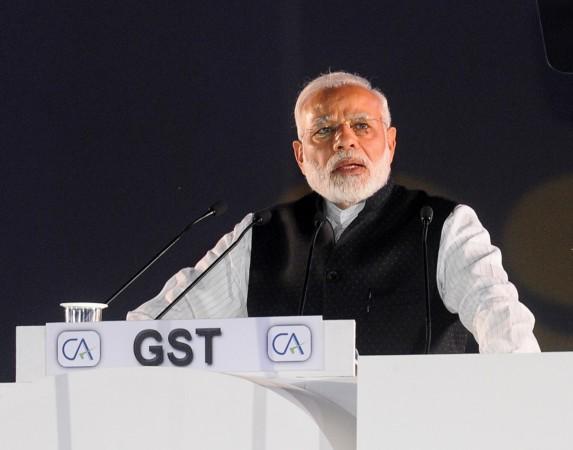
Prime Minister Narendra Modi on Monday, September 11, delivered an address to mark the 124th (though they said it was 125th) anniversary of the historic address of Swami Vivekananda in Chicago on the same day in 1893. The PM, who addressed students and youth at the convention organised by Deendayal Reserach Institute and the Ministry of Culture, also remembered the saffron ideologue Deendayal Upadhyay on the occasion of his 100th birth anniversary. Besides, leaders like Mahatma Gandhi and Gandhian Vinoba Bhabe, whose birthday also falls on September 11, were also remembered.
Modi used the occasion perfectly to show the moderate faces – both his and the ruling regime. At a time when the saffron establishment is facing a serious backlash over issues like demonetisation and its effect on the Indian economy, cow vigilantism and fatal attacks on freedom of thought and expression (especially the murder of veteran journalist Gauri Lankesh last week), it was an urgent need for the prime minister to strive for the moderate image and who else other than personalities like Vivekananda and Deendayal Upadhyay could have helped me the most?
Modi made analogies with the teachings and philosophy of Vivekananda and Upadhyay to present his thoughts to set example of a liberal, conscientious and responsible India. He connected the issues of clean India, agriculture, 'Make in India' that his government has been emphasising a lot with the teachings of Vivekananda to regain the trust that the people of the country had reposed on him three years ago.
Modi tried to reclaim lost ground through Vivekananda but did it succeed?
But did Modi actually succeed in achieving his political goal? One would say that the way the right-wing elements have gained a momentum in our society and polity and the ruling establishment has remained ineffective in reining them in, PM Modi's borrowing ideas from Vivekananda looks an inadequate effort because his own camp has already made the gap between the traditional Hinduism and modern-day Hindutva too wide to bridge. Any sugar-coated feel-good words will only sound superficial since the ground reality is far too dangerous at the moment.
Modi, towards the end of his speech, advised the youth to ensure India doesn't remain a frog in the well and embrace the world with open arms. The pluralistic India we have known to have existed over the years has always believed in that philosophy. But when we see the rulers and their followers in the 'new India' engaging in acts that reject plurality and try to make India a monolithic entity, Modi's advice sounds hollow and unconvincing.

If Modi wants the youth to embrace the world and not turn a narrow-minded frog in the well, then why is his government hell bent on deporting the Rohingya Muslims to Myanmar? If the prime minister and his ruling regime believes in positive human faculties, why is that he is not ensuring stern steps against the culprits attacking Dalits and minorities? Preaching positive message is good but it is always better to practice it as well.
Modi nevertheless had a few good suggestions for the educational institutions. He advised them to focus on issues like cleanliness in the campus and observe occasions for people from other states (like for example, a Tamil day being observed in a Haryana institute) but at the same time, when one recalls how Modi's government had dealt with issues like the JNU fiasco or death of Rohit Vemula a few years ago, then his words on academics seem less weighty.
The words of PM Modi are not matching with the actions by his supporters – party or ideological – on the ground and this is where good talks on Vivekananda become less appealing. The ruling regime needs to stop mob lynching and attack on free thinkers before asking others to feel inspired by the greats of the past. As of now, the bhakts are not even ready to abide by the philosophy of Deendayal Upadhyay, forget that of Vivekananda.

















